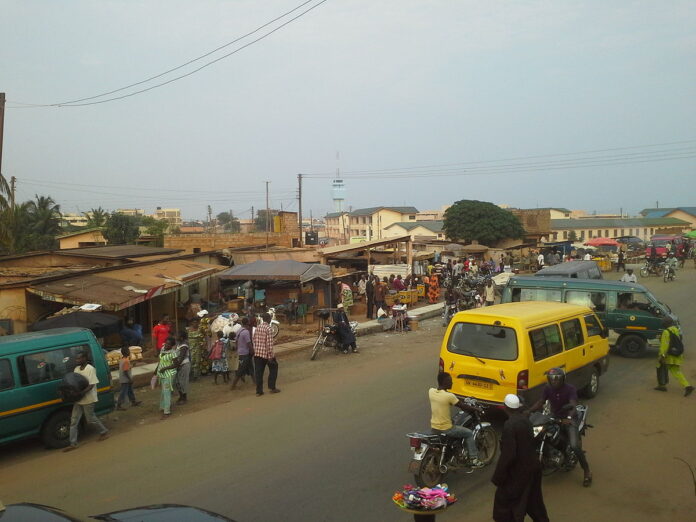Owners of Small and Medium Scale Enterprises (SMEs) at Aflao in the Ketu South district say they are still suffering the economic impact of the COVID-19 crisis.
They said the COVID-19-induced restrictions, especially the closure of the border for two years, had affected the municipality and in particular, Aflao, home to Ghana’s busiest land border, leading to the collapse of their businesses.
This came to light at a town hall meeting organised at Aflao by a civic organisation, BudgIT Ghana in partnership with OXLADE Consulting and Open Foundations Society on the OSIWA Project.
The OSIWA project is aimed to assess post economic resilience of small-scale businesses in the country to have accurate information to aid in the recovery of these businesses.
The town hall meeting was on the theme: “Pre and Post-COVID-19 Pandemic Socio-Economic Resilience Strategies: Impact and Lessons from Stakeholders.”
Ghana’s inability to achieve COVID-19 vaccination target unfortunate-World Vision
‘The end is in sight for COVID-19’ – WHO Boss
Attendees shared their experiences during the Covid-19 period, and thereafter, with major emphasis on the adaptation and coping strategies of their businesses, employment and working conditions, impacts on wages and incomes, food consumption, borrowings and asset holdings, and the level of government support.
Participants, who spoke to the Ghana News Agency, said their day-to-day economic activities halted due to the trade restrictions and confinement measures announced by the government and with no form of support to cushion them from the economic hardship.
Mama Hedenya Xenyo II, Queen of Aflao Aflagatigorme, said the economic impact on her subjects and some colleague traditional leaders during the peak of COVID-19 was huge and it would be good for some support to be extended to them because “even now, we’re yet to fully recover from it.”
“We thank our Chief, Torgbui Aglasu Xenyo III because, at a time when it became difficult for my electorates to feed, he gave out money for items, including bags of maize, rice and gallons of cooking oil.
No support came from the local Assembly or the central government to us, not even the free water because for a long time, we’ve not had water,” Alhaji Mohammed Amuzu, Assembly member for Aflagatigorme Electoral Area said.
Madam Lebene Dzumador, a shopkeeper, said: “We’re still feeling the heat and now that this organisation has come to hear our concerns, it’s my hope that something positive will happen.”
Mr Khiddir Iddris, Research and Programme Lead at BudgIT Ghana said his organisation and stakeholders’ role in boosting health sector accountability and vaccine equity in Ghana.
He said the government, like others globally, continued to play a crucial role in cushioning people and firms from the pandemic and its economic fallout.
“It’s important that we assess the relief packages that the government has provided so far as well as socio-economic resilience of businesses, especially from this border town,” Mr Iddris said.

